
Image courtesy: stuart miles at FreeDigitalPhotos.net
I always feel sad when I see women abandoning natural methods of improving egg quality only because they entered fertility treatments, or losing faith in their bodies once they turned 35 or have been trying to get pregnant longer than a few months.
There’s really no need to.
After having researched the topic of improving egg quality for several years (and after coping with my own low ovarian reserve and still getting pregnant naturally twice after the age of 35) I feel confident to say the following:
Women over 35 can and should put their efforts in improving the quality of their eggs, because in 7-8 out of 10 cases, it will work.
Yes – minor changes in diet, targeted supplement strategy, and a few more lifestyle adjustments will mostly be sufficient to promote the better egg health and provide an embryo-friendly implantation environment.
This means, women themselves have the power in their hands to increase the chances to conceive naturally. So why not use this power?
Women who don’t succeed in conceiving naturally in spite of investing time and efforts in improving egg quality will of course need to seek a help of a specialist (and I always advocate to start medical examinations sooner rather then later – waiting for one year before visiting a specialist is after the age of 35 plain risky and a painful truth is that many women will change the doctor for any reason, so you need to calculate for that time, too). Yet even here, those who have already invested half a year in improving their egg quality will have better chances to get away only with minor fertility medications. And if they go for IVF or ICSI, chances are these will give better quality embryos if there were good eggs to start with.
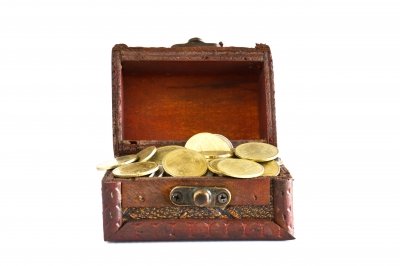
Image courtesy: stoonn at FreeDigitalPhotos.net
In any way there is nothing to lose and only much to win by learning how to work as a team with your own eggs! I wonder, how many cases of premature egg donation could have been prevented (and will be prevented in the future) by educating women on how to give their own eggs a chance?
Did you know, that the female body can easily sustain pregnancy even at 45 and beyond and that the only true limiting factor in women getting pregnant is their diminishing ovarian reserve? Without wanting to say that anyone should be given a false hope, kept in uncertainty, or pushed into costly fertility treatments which won’t work, I still want to call for more common sense on the egg donation issue.
I have contact with tons of women who are in fertility treatmens and my general impression is: in the countries like US where egg donation is legal and fertility clinics work under a huge pressure to maintain high success rates, this procedure is often offered too early. On the other side, in the countries like Germany and many others where egg donation is (unfortunatelly!) still illegal, women are encouraged to search for other solutions. I only can say: let’s keep the egg donation for the time when ovaries have stopped working (or the time when you for psychological or financial reasons can’t cope with infertility any longer). Let’s not rush into a donation before the eggs are gone.

Image courtesy: stuart miles at FreeDigitalPhotos.net
If you are over 35, keep your eggs frish and care about them daily, the way you put your makeup in the morning; give them a chance to shine, before you put too much hope in technology and doctors.
Certain processes in nature harbour enormous power and, if used in the right way, will affect the rest of your life in a positive way.
There is enormous power in getting pregnant with your own eggs and having that feeling of being able to give a new life.
There is enourmous power in feeling a genetic bond to another human being.
There is enormous power in giving birth naturally. Unfortunately, sometimes is experiencing all three not possible (and thank God we have technical possibilities to overcome those obstacles). But let’s not reach for technology until we have exhausted the powers and potentials of our bodies.
Apart from improving egg quality (which is by far the most limiting factor in getting pregnant for ladies over 35 with healthy partners), there are other things which you can work on in order to boost your chances of conception.
It’s more important to have intercourse earlier in the cycle rather than late. Once your body temperature rises you’ve already ovulated (which is the reason why I hate temperature measuring and always vote for simple LH stripes), your progesterone is on the rise, and the cervical mucus is thickening. While there still a possibility to conceive naturally, this is probably too late.
And there are some more keys:
- Maintain a healthy body weight (without becoming too thin)
- Get regular sleep (very important and currently in the research focus)
- Stop smoking (do I need to mention this?)
- Control caffeine (1-2 cups a day are OK and the green tea is even better)
- Low alcohol intake (with this I mean one glass of red wine because I assume you eat Mediterranean diet)
- Take supplements
- Try intercourse as early as day 8 and have LH-strips in every bag! I smile every time when I find my old LH tests falling out of the pockets of jeans I haven’t worn since the time I was trying to get pregnant. I never was the type who liked having sex every day or on schedule and LH-strips have been my best friends in those years.
- Change to a lubricant shown safe for fertility-challenged couples and don’t use any sticky stuff which kills sperm (and gives you Candida&Co)
- Think that over 30% of fertility difficulties are sperm-related. It’s one of the easiest tests to do and can change the focus of the treatment strategy, so do it first. Close to 50% of couples have both male and female fertility factors as part of the difficulty and you need the information about your partner’s sperm as soon as possible.

Image courtesy: adamr at FreeDigitalPhotos.net
And please, please, put the charts aside. Even if you’ve been trying for a while, take a month or two to relax, make love without schedules, and just be yourselves. This will help your relationship and set you together for whatever hardship comes next.
If the waiting to get pregnant still stresses you, you can cut it but getting some hormone tests done, just in case! It’s always better to proceed from knowledge rather than being ignorant and hoping for the best. Or do you have a different strategy?
Write to me, I like to hear what you think. Love,
Darja
Supplements which are scientifically proven to increase egg quality:
(DHEA, CoQ10, Vitamin D3, Omega-3)
Prenatal vitamins and folic acid (best is to start 3-6 months before you try to get pregnant):
To find out when you ovulate:
Lubricant (swimmer-friendly and not sticky) and early-response pregnancy tests:




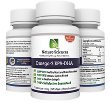


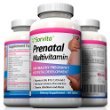


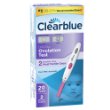





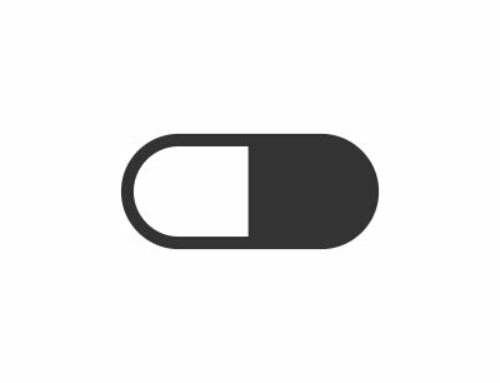

Hi Darja, How many mg should i take daily? Thanks!
hi allie,
there are several articles on this blog treating that question (how much DHEA, what to test first, which is the desired testosterone range for those who are supplementing DHEA etc). please have a look here https://paleo-mama.com/?s=dhea
Hi !! I have been reading your posts on fertility. I am 36 year old and been trying to conceive for a little over 2 years now with no success. We visited a fertility clenic and were told the only chance was ivf, due to my partner low sperm motility and a pituitary microadenoma in me. The cost of ivf is out of our reach at this point, since he’s starting his own business and I’m paying off my student loans. I would like to be able to talk to you. How could I reach you ?
Thank you
Marjorie Roman
dear marjorie, you can write me an email as explained here https://paleo-mama.com/how-to-contact-me/ look forward to talking to you!